Five-day IOS Winter School Programme in Islamic Studies Concludes

Five-day IOS Winter School Programme in Islamic Studies Concludes
New Delhi: A five-day online winter school programme in Islamic studies was organized by the Institute of Objective Studies from February 20 to 24, 2024. The programme was started in order to impart basic, but deep Islamic knowledge to the university students pursuing professional disciplines, like graduations and masters in business studies, science, computer science, engineering, medicine, etc. It is also an outreach programme to introduce the Institute to new and larger audience, particularly the students who are future leaders in different disciplines and have potential to take lead in decision-making in their respective fields.
The programme began with the recitation of some Verses from the Holy Qur’an by Maulana Adnan Nadwi.
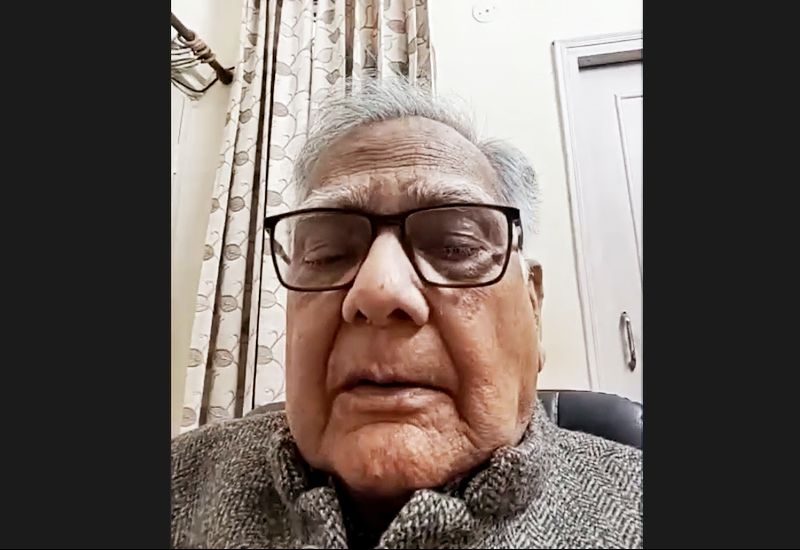
In his inaugural speech, secretary general of the Institute, Prof. Z.M. Khan, said that Islamic legends are becoming important day by day because Islam has powerful solutions to the problems and evils facing society. He observed that this programme is special because of the importance of the themes and the participation of well-known scholars. IOS is working hard on Islam and Ummah and the works related to them are topics of debate. Ideals in terms of morality and ethics are also being dealt with. The Institute is also coordinating with other organisations in USA, Malaysia and Indonesia in its outreach programme. Besides research, one of the other activities is the printing of books in English, Urdu, Hindi and Arabic. This includes publication of the books of International Institute of Islamic Thought (IIIT), Malaysia and Indonesia. The Institute is also regularly organizing seminars, discussions and conferences, he said.
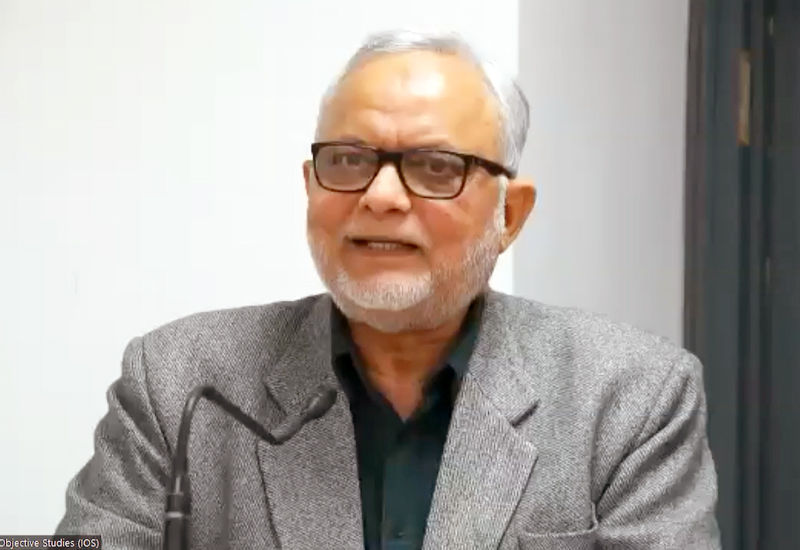
Speaking as a guest of honour, former dean, faculty of humanities and languages, Jamia Millia Islamia, Prof. Mohammad Ishaque, observed that the programme is aimed to prepare the young generation to embark on a journey of Islamic learning. They are the future leaders in different disciplines. He said that there was a growing interest in Islam in the West. The world is thirsty of knowing about Islam. He emphasized that the Muslims should be fully aware of Islamic legacy and heritage. Briefly quoting from the history of Islamic thought, he said that the Dark Ages in Europe saw the fall of culture, knowledge, civilizational and intellectual values. Before the seventh century, Muslims excelled in Algebra, Mathematics and other natural sciences.
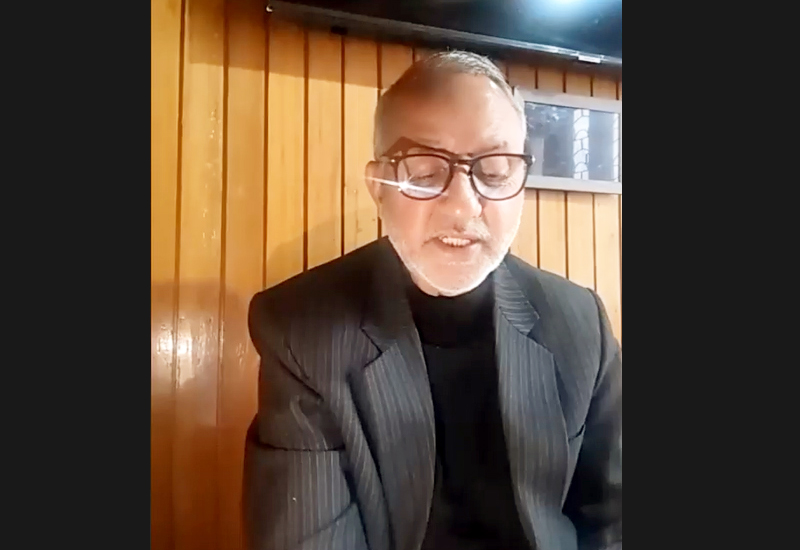
Former vice-chancellor of University of Islamic Science and Technology, Awantipura, Jammu and Kashmir, Prof. Mushtaque Ahmed, speaking as a guest of honour, observed that though the contribution of Islamic civilization is in public domain, yet there has been renewed interest in the study of Islamic civilization in the past 50 years. He said that today’s academic world is developing educational dichotomy. Education unsuccessfully blended Islamic thought with the European thought. Islam is not a set of faults but a set of ethics and ideas. This could be traced to Surah Al-Baqarah and Sahih al-Bukhari. He opined that had the Greek scholars not translated Islamic works, Europe would not have as excelled as they are today. He noted the Islamic empire was the golden period of Islamic thought. Referring to Abu Bakr al-Razi, he said that he was a Persian physician, philosopher and alchemist who lived during the Islamic Golden Age. He was widely regarded as one of the most important figures in the history of medicine. Artificial Intelligence, datamining, disruptive innovations, etc., have revolutionized technology. Disruptive technology and digital economy emerged as new names in the field of modern technology. He asked for using indigenous technology to replace disruptive technology.
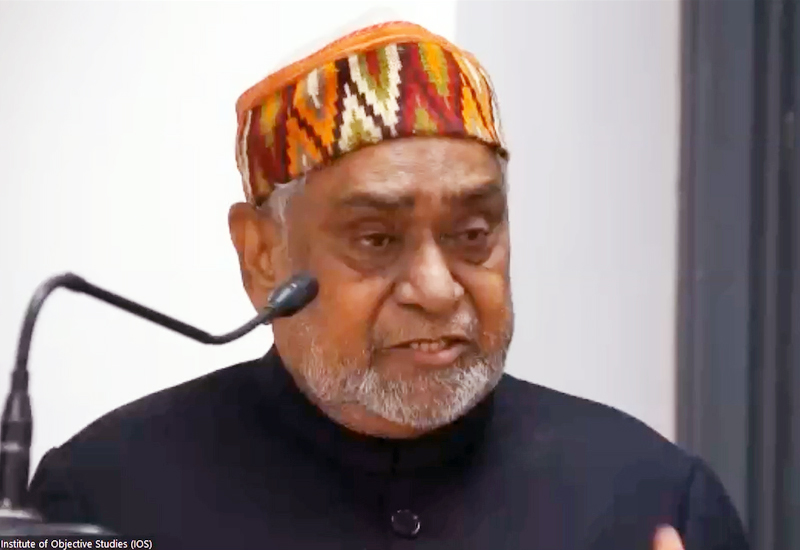
In his presidential remarks, professor emeritus, Islamic Studies, Jamia Millia Islamia, Prof. Akhtarul Wasey, suggested that the 5-day winter school programme should stretched to one week. He also said that every participant in the school should be awarded diploma instead of a mere certificate. He pleaded that some change in the methodology of the understanding of the Holy Qur’an should be brought about. He said that Muslims at large listened to Qur’an but did not act according to it. He said that there is dichotomy between Islam and science. He noted that the Prophet (PBUH) had said that religion of a student should not be taken into account while teaching him. Process of caring for a child started from the lap of the mother and continue till his death, he observed.
He warned Muslims against being judgmental. Muslims could not expect similar response from non-Muslims unless they did respond to them in equal measure. He advised Muslims not to entertain fear in the face of adverse circumstances. Muslims survived after 1857 and 1947, and would survive in future as well, Prof. Wasey concluded.
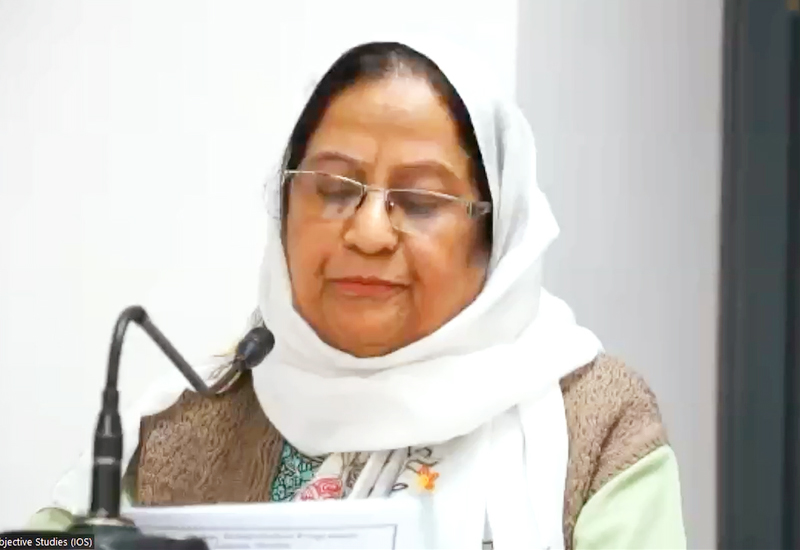
The inaugural session ended with a vote of thanks extended by the assistant secretary general of the IOS, Prof. Haseena Hashia.
Business Session-I
Lecture-1
The first lecture of the business session-I focused on Aqeeda: Tawheed, Risalat, Akhirat. Prof. M. Ishaque was the speaker who observed that aqeeda is the basic foundation of Islam. There are six Kalimas that formed the basics of Islam. Justice and righteousness are the foundations on which Islam stood. Allah sent the Prophet (PBUH) as His Messenger to guide humanity. He said that the heart has a prominent place in a human being. If the heart does not function properly, the body too would remain unwell. One should remain content with whatever Allah granted him. Heart and wisdom are a building of the human being. Promise and actions are essential for practicing faith. He explained that Tawheed is the existence of Allah. The one, who keeps his desire (Nafs) under control, becomes successful. There must be Tawheed (Belief in one God) as opposed to dualism or polytheism. He was the only entity worthy of worship. Allah is the only hope for all living beings. Prof. Ishaque held that Allah is the creator of all. This is Tawheed. Allah is the only source of Hidayah (guidance). Faithful are asked to have faith in Tawheed. Muslims believe in Akhirat (The day of Judgement).
Lecture-2
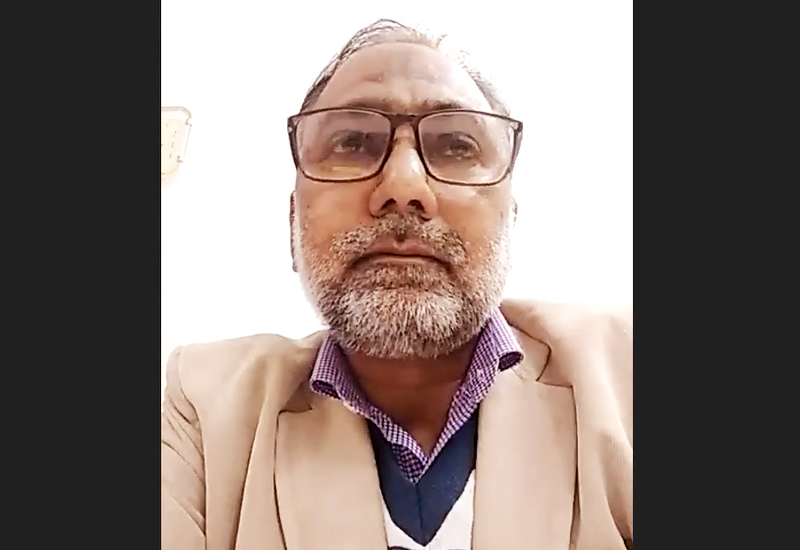
The second lecture focused on Jama Wa Tadween Qur’an (collection and compilation of the Qur’an). The speaker of the topic was Dr. Mohammad Arshad, assistant professor of Islamic Studies, JMI. He said that Allah not only created man but also made a provision for food for him. Prophets were sent to earth for the guidance of human beings and Holy Books were revealed to them so that the people could read them. It is said that holy books were revealed to 315 prophets. Some pieces of the book revealed to the Prophet Idris have been found. The Qur’an is the final book to be revealed. He said that the Prophet used to dictate the Sahabas (companions) who were able to write. Spellings of words were corrected subsequently.
Dr. Arshad held that the Prophet (PBUH) also made arrangements for the preservation of the Qur’an by way of compilation. In order to preserve it, Muslims were required to recite Qur’anic verses in Namaz (prayers) five times a day. Muslims were required to learn Qur’an from teachers. A large number of Muslims memorized the entire Qur’an and this practice continues even today. He said that the Qur’an was not compiled in the same chronological order as was revealed to the Prophet (PBUH). The Prophet used to listen and recite the Qur’an every year during the months of Ramadan. He recited Qur’an 4-5 months before His death so as to compare it with other manuscripts, Dr. Arshad concluded.
Lecture-3
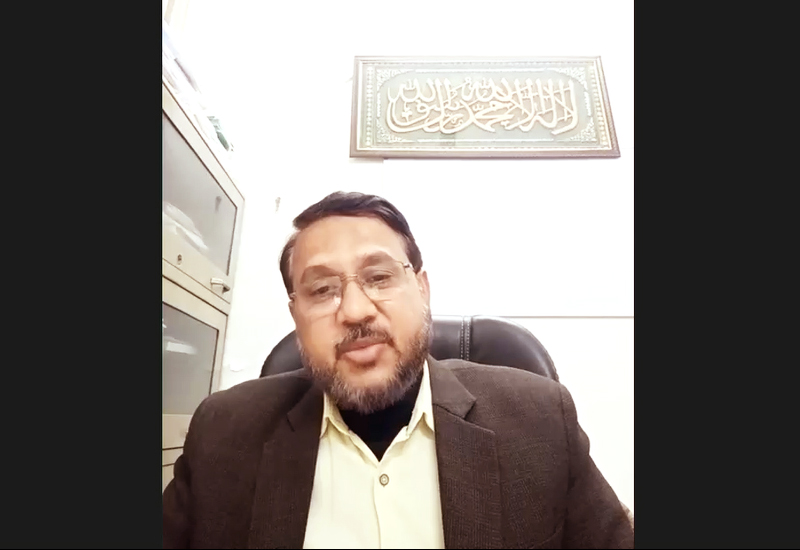
The third lecture was devoted to Jama Wa Tadween Hadith. Dr. Mohammad Khalid Umeri spoke on the topic. He observed that Hadith is the indirect Wahi (Revelation). Wahi is of two kinds – Jali and Khafi. Explaining both of them, he said that there were a number of prophets whom no holy book was revealed. But whatever they stated was the word of Allah. Such assertions were called as ‘Khafi’. He held that the Prophet (PBUH) had disallowed compilation of Hadith lest it could distract the attention from Qur’an. Hadith was compiled much after the Prophet (PBUH). There existed no practice of writing during the lifetime of the Prophet (PBUH). One of the reasons for not recording Hadith was to prevent any apprehension of the Hadith forming a part of Qur’an, he said.
Dr. Khalid Khan held that the work of compilation of Hadith was completed in three stages. The compilation was started in the lifetime of the Prophet (PBUH) itself. As many as 236 Hadith were found after his passing away. These belonged to the treatise of Jabir bin Abdullah. In the second stage, Hadith were written during the Caliphate, he noted.
February 21, 2024 (Day-2)
Business Session-II
Lecture-4
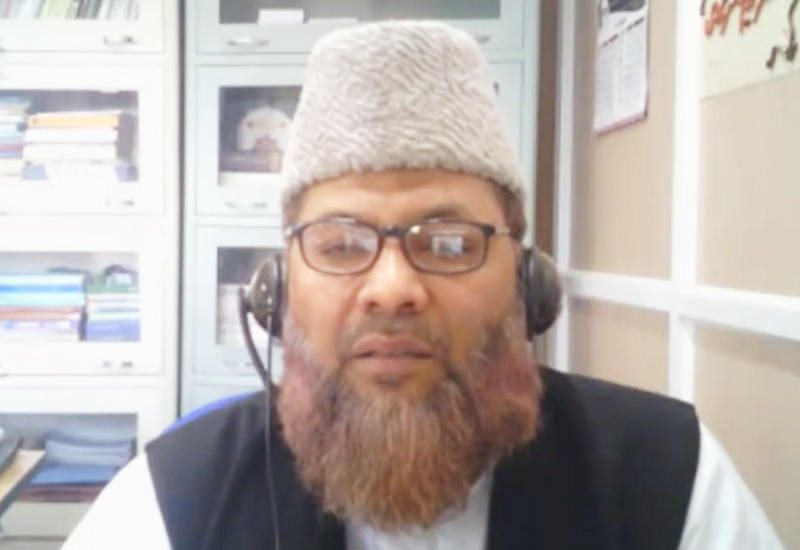
The fourth lecture featured on ‘Revelation and its application: Focus on Sunnah as sources of Shariah which led to the emergence of Fiqh’. Prof. Mohammad Fahim Nadwi, Head, deptt. of Islamic Studies, Maulana Azad National Urdu University (MANUU), Hyderabad, was the speaker who very lucidly explained how the revelation was applied to various branches of theology.
Lecture-5
The fifth lecture focused on ‘Introduction to Tasawwuf’. Dr. Mushtaq Tijarvi, assistant professor of Islamic Studies, Jamia Millia Islamia New Delhi, spoke on the topic. He explained that Sufism was also a way to worship Allah who is the Master of the universe. Sufis were fully immersed in the love of Allah.
Business Session-III
Lecture-6
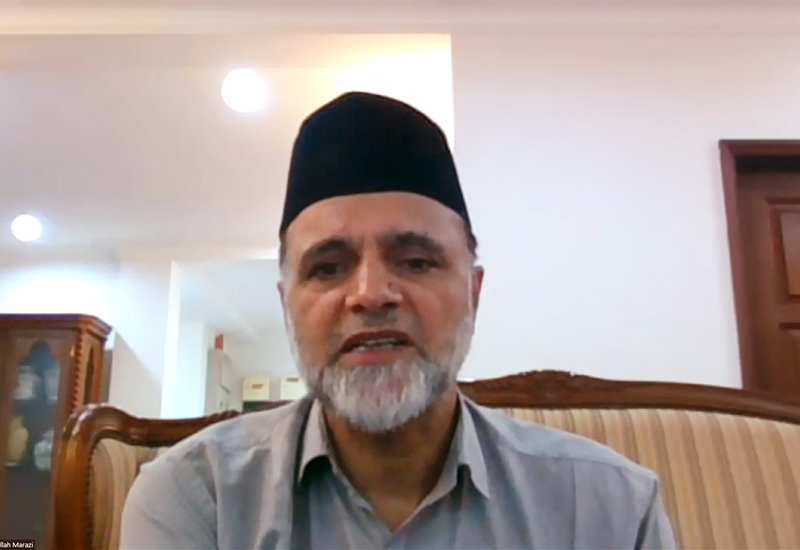
The sixth lecture was devoted to ‘Islam as faith and civilization’. Prof. Hamidullah Marazi, former professor, Central University of Kashmir, explained in detail the Islamic faith and civilization. He said that the Islamic faith leads one to firmly believe in the Majesty of Allah. Islamic civilisation stemmed from this belief.
Lecture-7
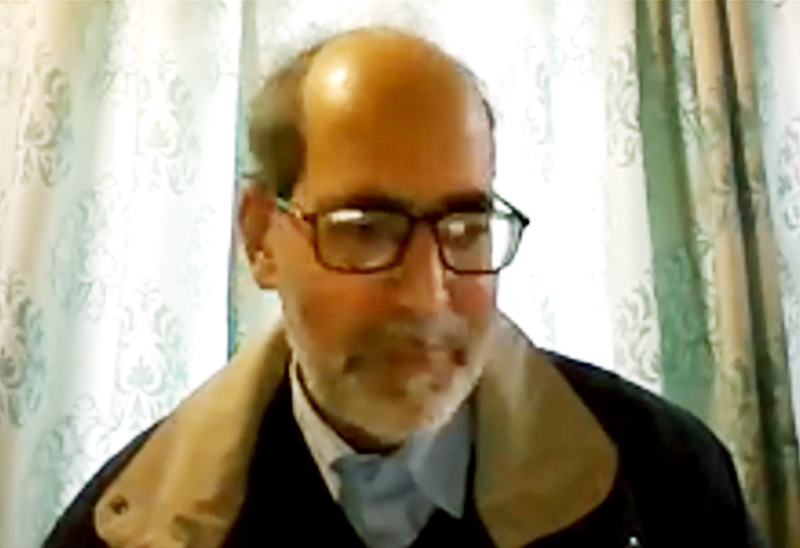
In his lecture, Prof. Abdur Rashid Bhat, professor, deptt. of Islamic studies, University of Kashmir centred on ‘Islam and knowledge.’ He said that the Islamic knowledge gave much to the world in terms of research and enquiry.
Lecture-8
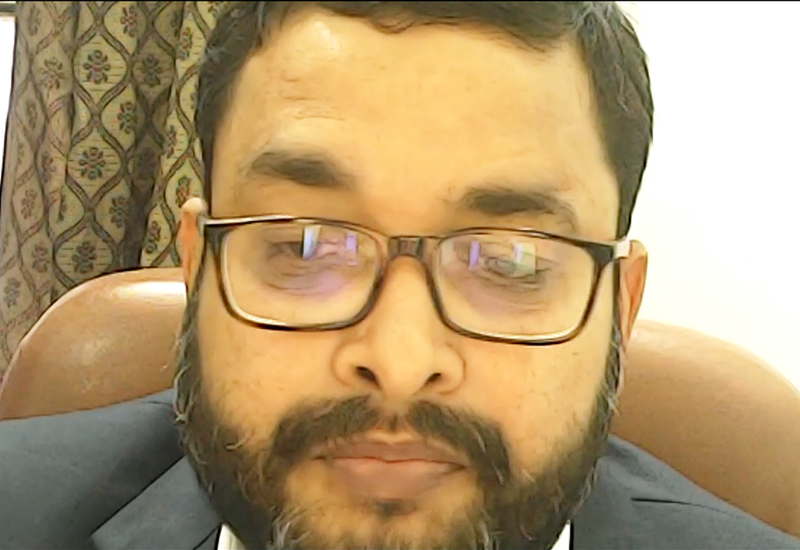
This was the last lecture of the session which focused on ‘Arab Muslim contribution to the Mathematics, Medicine and Astronomy (Natural Sciences)’. Dr. Mohammad Umar Farooque, assistant professor, deptt. of Islamic Studies Jamia Millia Islamia, New Delhi, spoke on the subject. He explained how the Muslims contributed to these subjects before the Europeans could even think of it.
February 22, 2024 (Day-3)
Business Session-IV
Lecture-9
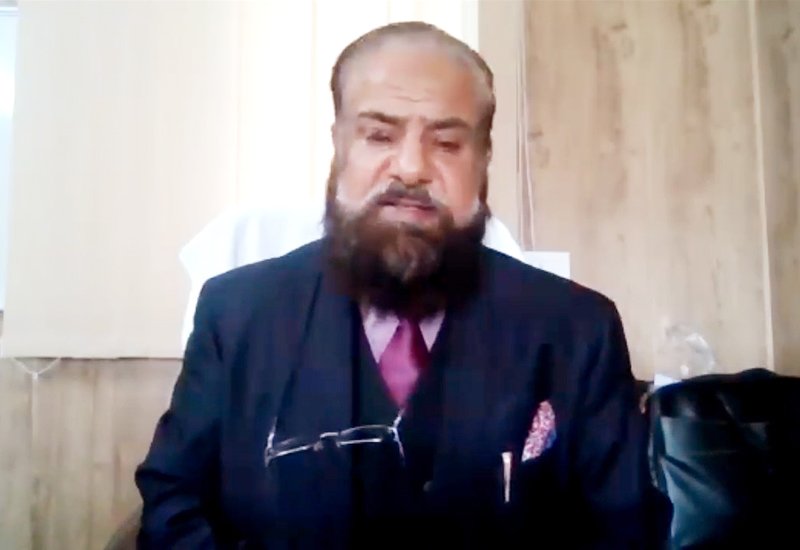
Ninth lecture centred on ‘Contribution to Humanities and Social Sciences’. Prof. Abdul Majid Khan, deptt. of Islamic Studies, Aligarh Muslim University, Aligarh was the speaker who discussed Muslim contribution to humanities and social sciences. He held that Muslim scholars were much ahead of the Western thinkers who are credited with the development of various disciplines.
Lecture-10
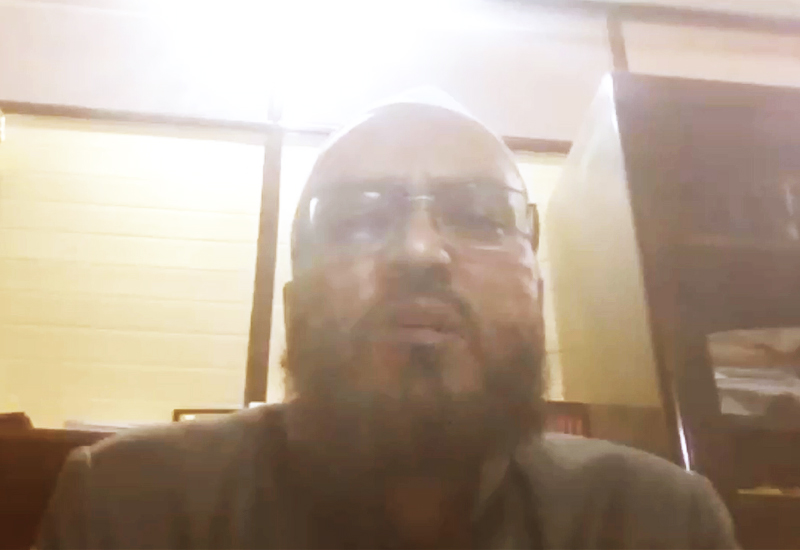
The tenth lecture focused on the topic ‘Non-Muslims during the time of the Prophet. Dr. Waris Mazhari, assistant professor of Islamic studies, Jamia Hamdard, spoke on the subject. He argued that there was no discrimination against non-Muslims during the time of the Prophet of Islam. He was against all forms of discrimination against non-Muslims. They also enjoyed equal rights.
Business Session-V
Lecture-11
The eleventh lecture was devoted to ‘Islam and multiculturalism: Modern debate and Islamic position on the subject’. Prof. Hamidullah Marazi deliberated on the subject. He noted that Muslim rulers were non-discriminatory towards non-Muslims as far as their cultural traditions and practices were concerned. Peaceful coexistence was policy they followed.
Lecture-12
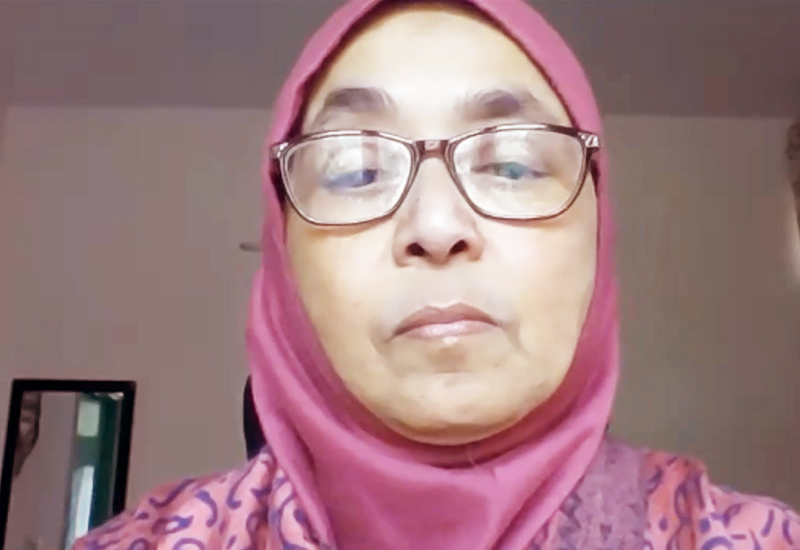
The twelfth lecture was centered on ‘Islam and Modernity’. Dr. Safia Amir, assistant professor, deptt. of Islamic Studies, Jamia Hamdard, New Delhi, spoke on the subject. She said that Islam is not against modernity. Islam encourages its followers to forge ahead and do whatever was possible for welfare of the humanity.
Lecture-13
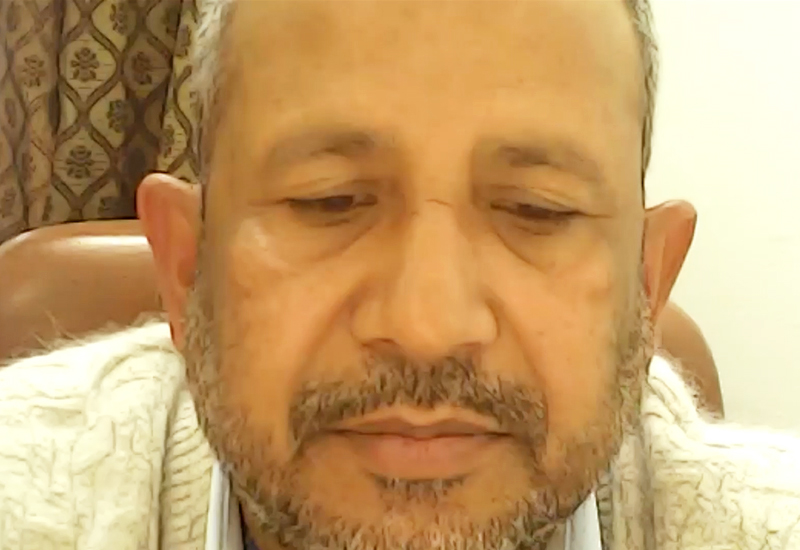
The speaker of the thirteenth lecture was Dr. Khursheed Afaq, assistant professor, deptt. of Islamic Studies, Jamia Millia Islamia, New Delhi, who touched upon ‘Muslims under the Muslim Empires: the Umayyads and the Abbasids’. He briefly discussed the state of Muslims during these two periods.
Lecture-14
The fourteenth and last lecture of the session was devoted to ‘Non-Muslims in the Arab-Islamic World (Syria, Lebanon and Egypt)’. Dr. Mohammad Arshad discussed the topic. He said that the treatment with non-Muslims was based on equality. They were encouraged to pursue their faith without fear.
February 23, 2024 (Day-4)
Business Session-VI
Lecture-15
Prof. Syed Jamaluddin was the speaker of the fifteenth lecture which focused on ‘Non-Muslims under the Muslim Rule in India’. He held that by and large, non-Muslims were not subject to oppression or victimization. They were treated on par with Muslim counterpart.
Lecture-16
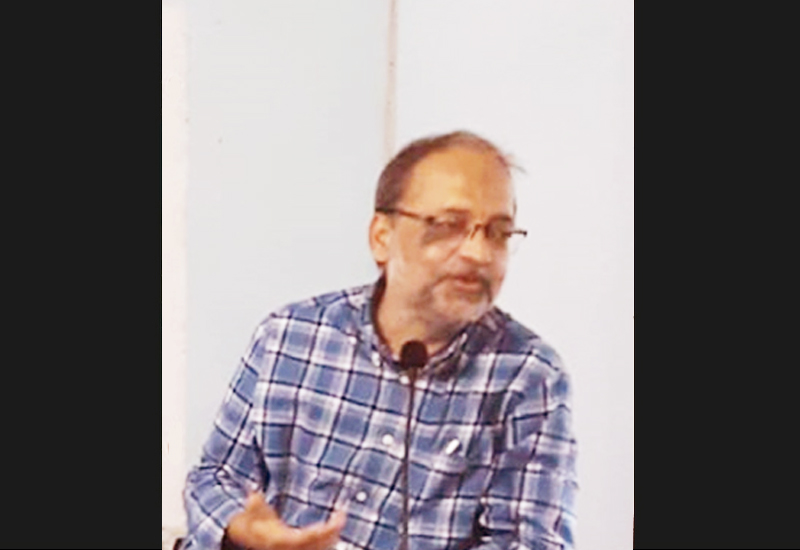
The speaker of the sixteenth lecture was Prof. Mirza Asmer Beg, professor of political science, Aligarh Muslim University. He spoke on ‘Islam vs. Terrorism’. He blasted the theory of Islamic terrorism. He said that it is the plot of the West to spread Islamophobia.
Business Session-VII
Lecture-17
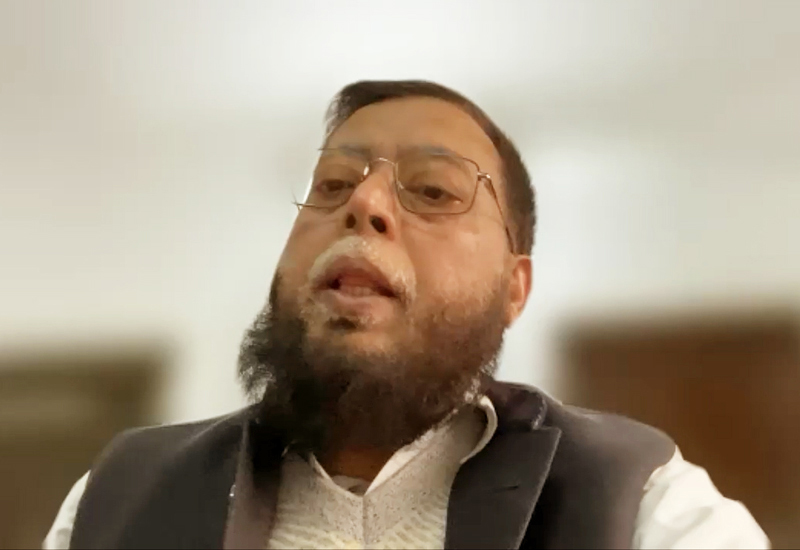
The seventeenth lecture was focused on ‘Globalisation and Islam’. Dr. Syed Fazlur Rahman spoke on the topic. H said that owing to the universal appeal, Islam is globalized. It has presence in every part of the world due to its liberalism and the principles based on justice and equality.
Lecture-18
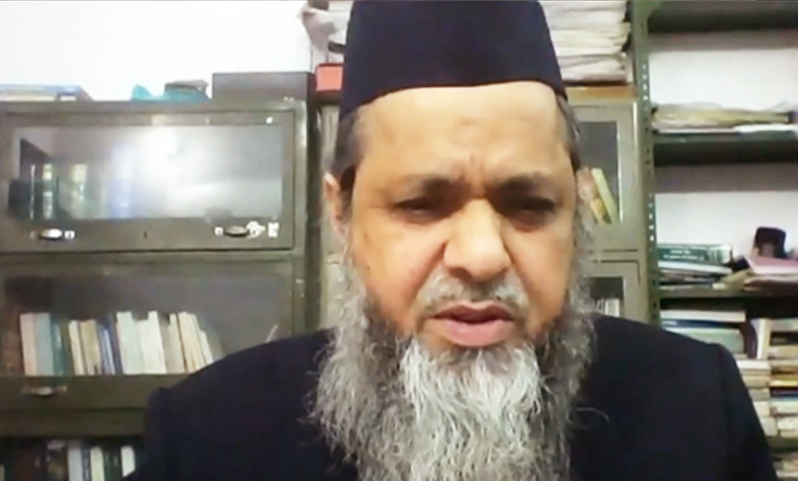
The eighteenth lecture was devoted to ‘Islam and Liberation Movements’. Prof. Arshi Khan, professor of political science, Aligarh Muslim University, Aligarh, deliberated on the subject. He held that Muslims fought against the colonial empire shoulder to shoulder with other communities.
Lecture-19
The nineteenth lecture was the last lecture of the session which touched upon the topic ‘Islam and secularism’. The topic was discussed by Prof. Z.M. Khan, secretary general, Institute of Objective Studies. As an expert on the subject, he said that secularism is basically a Western import on which modern democracies are functioning.
February 24, 2024 (Day-5)
Business Session-VIII
Lecture-20
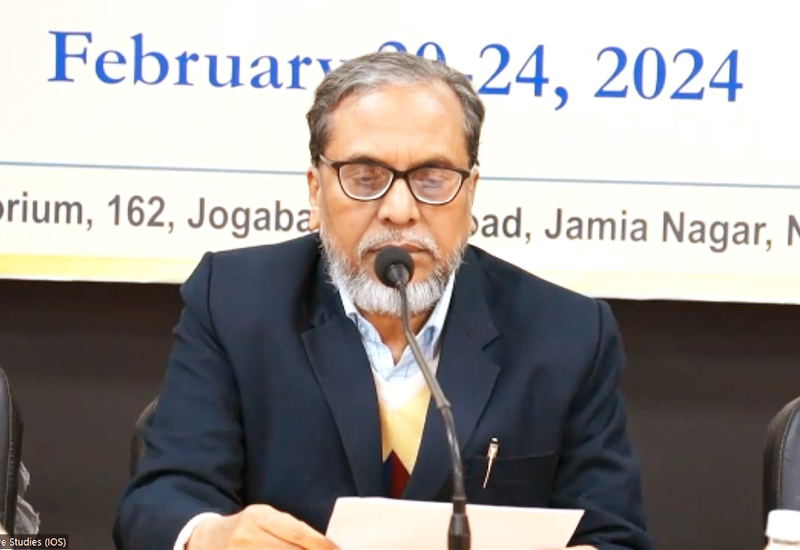
The speaker of the twentieth lecture was senior Urdu journalist and special correspondent of the Voice of America (Urdu) in India, Mr. Suhail Anjum. He spoke on ‘Islamophobia in the contemporary world’. He said that in 2022, the Organisation of Islamic Countries (OIC) presented a resolution in the United Nations against Islamophobia. Islamophobia was expressed in different ways. These included opposition to hijab (veils), inflammatory comments on masjids and abusive language against Muslims and slurring Muslim community. Muslims are looked with suspicion. They are targeted as high risk for the country. They are also alleged to be responsible for terrorism. He said that the mainstream media is also responsible for the spread of Islamophobia. Muslims are negatively portrayed in both electronic and print media.
Lecture-21
The speaker of lecture-21 was Prof. Z.M. Khan who touched upon the topic ‘Islam and Socialism’. He said that both the terms are used as fashion these days. The term socialism has been hijacked by politicians. He argued that Islam covered every aspect of life. Secularism has several connotations; one of them being Western. It attacks religion; which means that it is now and here. As against this, Islam is a monolithic religion which distinguishes itself from other religions. According to Islamic view, man’s relationship with God means his submission to the Almighty unconditionally. Indian version of secularism is very relevant because it was adopted by the Constitution. Some people believe that secularism is a stumbling block to modernity. He categorically said that Muslims do not understand secularism nor do they work on it.
Business Session-IX
Lecture-22
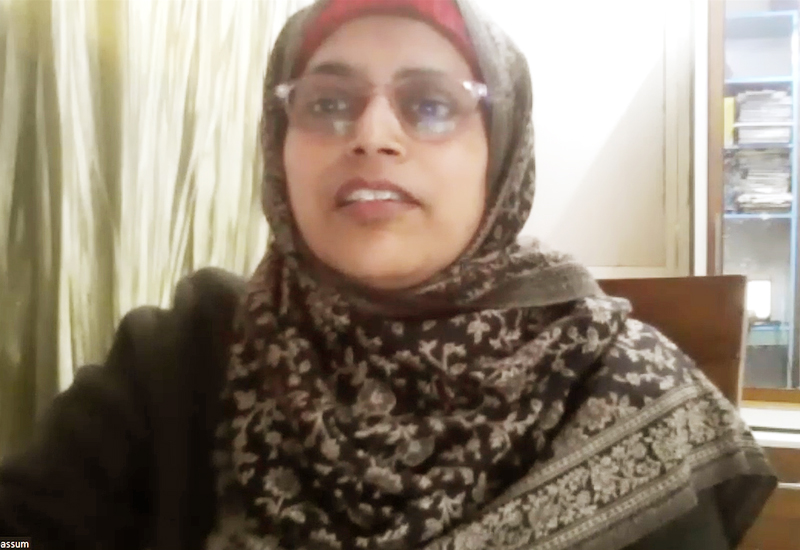
The twenty-second lecture was devoted to Muslim women’s empowerment in India. Dr. Suraiya Tabassum, assistant professor of women studies, Jamia Millia Islamia, spoke on the subject. She emphasized the need for participation of women in livelihood. She said that access and control are two different things. There are structural issues to deal with the issue in the context of Indian Muslim women. She said that if one has money and does not spend, it does not mean empowerment. She held that girl children are not encouraged to study. In the unorganized sector, they have no safeguards. Despite policies formulated by successive governments since 1947, not much changed till date. She concluded that women were secured with their faith.
Valedictory Session
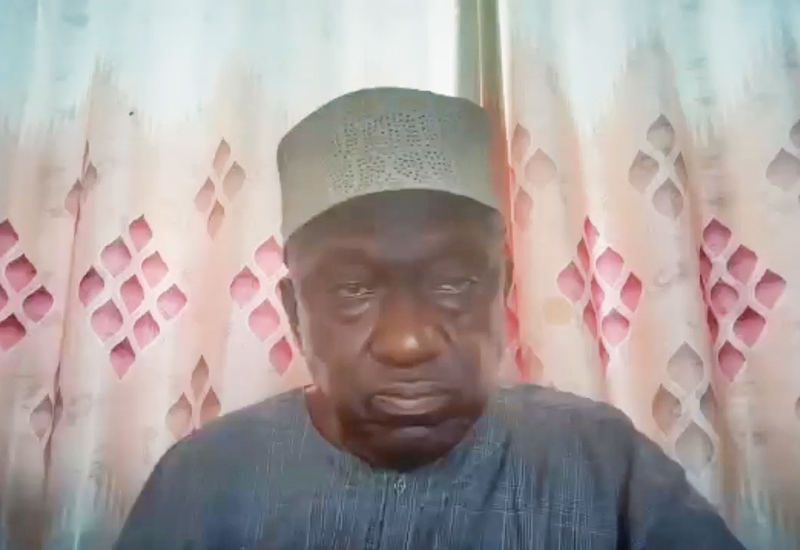
In his key-note address, secretary general, IIIT USA, Prof. Omar Hasan Kasule, said that the winter school programme of the IOS is a very good idea and interesting too. He compared it with the migration of Al Quraish who left their place in Makkah. Similarly, participants in the winter school programme are drawn from across the world. They came in winter and gained knowledge. The programme was about knowledge (Taalib-ul-Ilm). They had road to knowledge because they were looking for knowledge. Acquiring knowledge means receiving energy which has the power to move the universe. He noted that wise people always listen. The more one listens, the more he acquires. Secondly, Allah makes Jannah easy for those who seek knowledge as has been referred to by Hazrat Abu Hurairah.
Convenor of the conference, Prof. Mohammad Ishaque, said that the IOS has been organizing school programme for the last six years. The aim of organizing school programmes is to acquaint students with Islamic knowledge in order to enable them to live in an Islamic way and succeed in future. They could be torch-bearers of Islamic thought, he added.
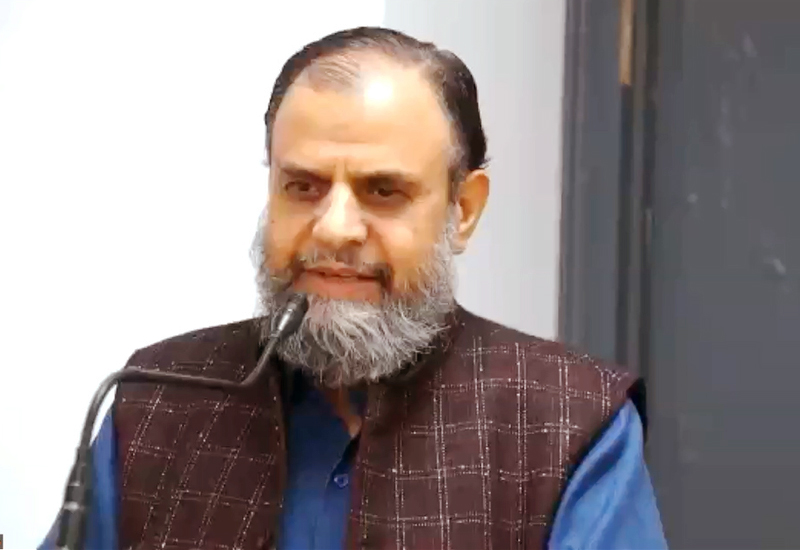
In his presidential remarks, Vice-Chairman of the Institute, Prof. M. Afzal Wani, called upon the participating students to see Islam in its true perspective. They are inspired to achieve their goal. They have many challenges ahead of them and it is their duty to accept them. These challenges could be met only by the correct understanding of Islam. He asked them to learn to apply their mind while dealing with an issue. They should perceive actual realities and apply their mind to act accordingly. He also called for understanding cloudy and foggy atmosphere. He said that they need methodology to understand the problem and use knowledge to solve it. He advised the students to have conversation with the Almighty and address Him. This relationship with God would help them to know answers to every problem. Islam is a great religion and its greatness lies in the Message of Allah that touches upon every aspect of the life of an individual, he concluded.
At the end of the five-day winter school programme, Prof. Haseena Hashia, extended a vote of thanks to the participants.
Go Back